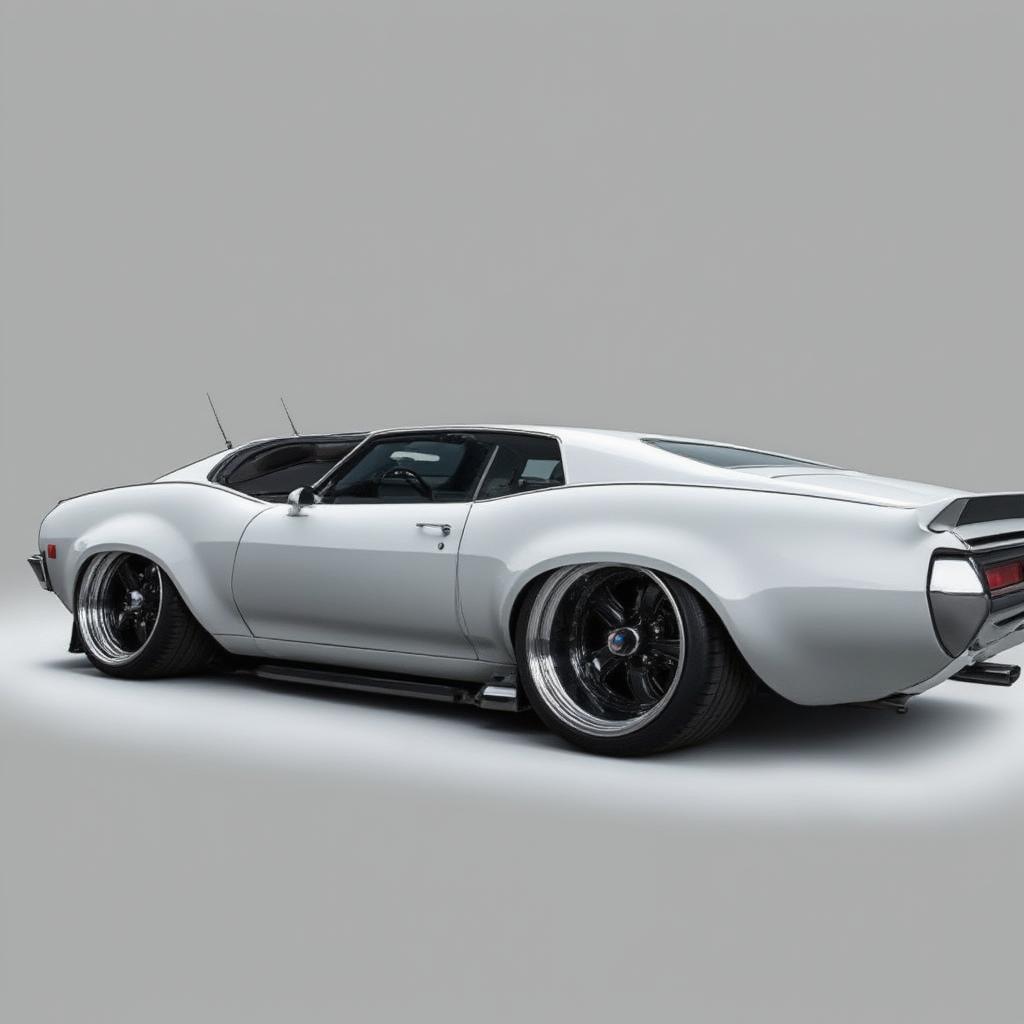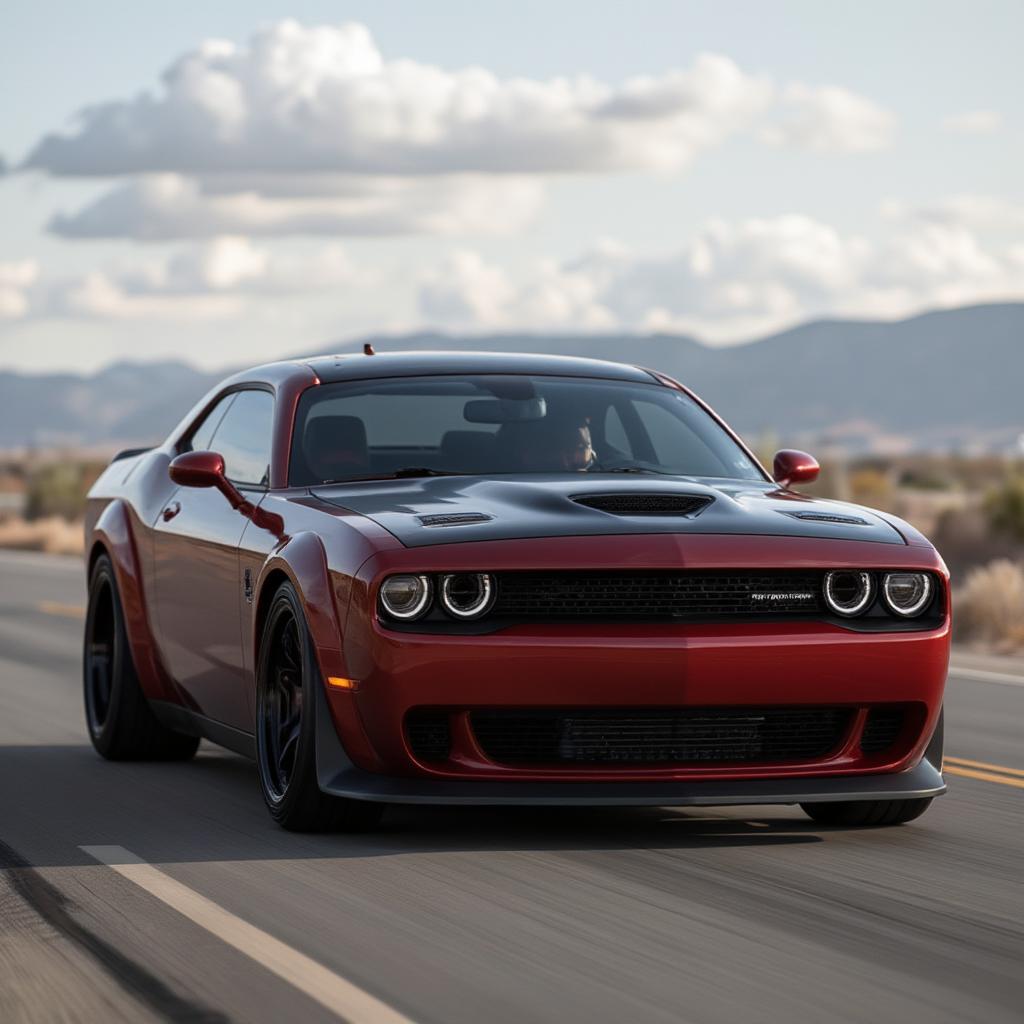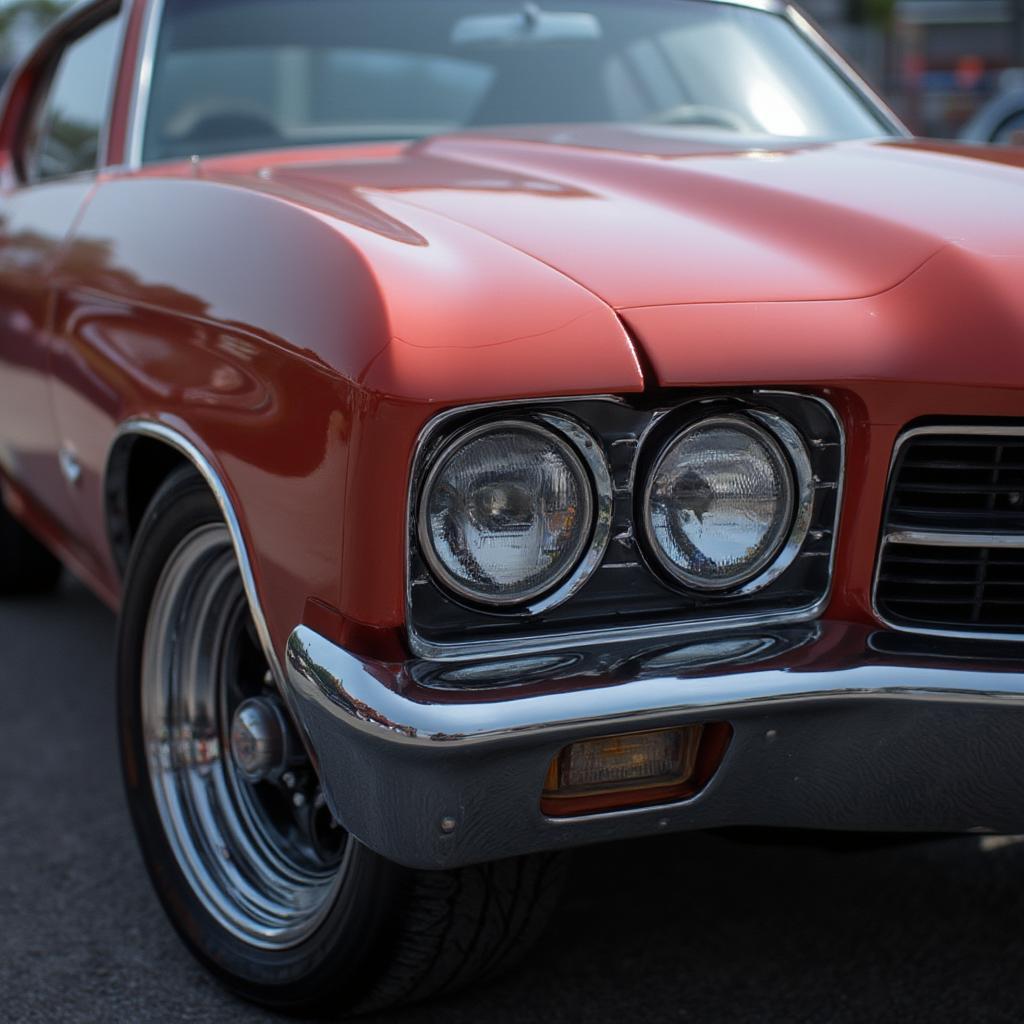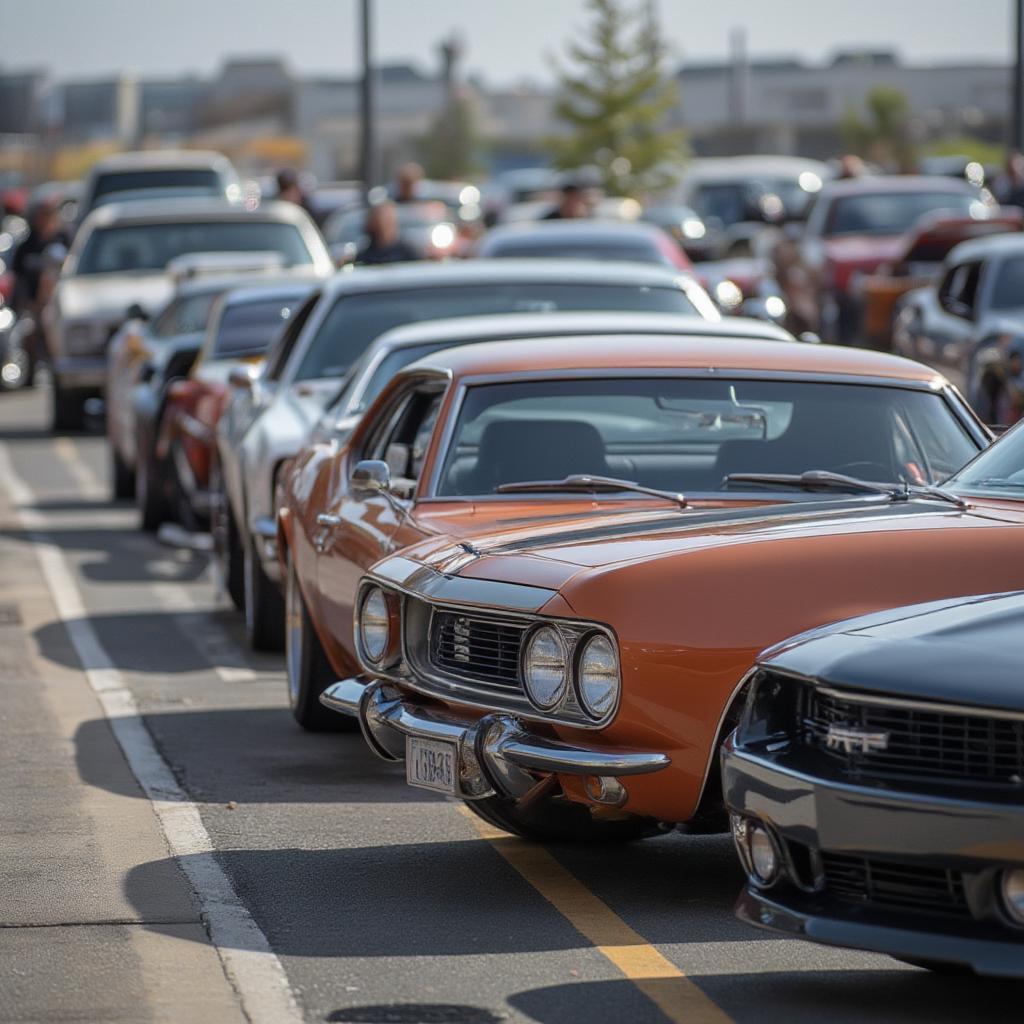Decoding the Most Expensive Muscle Cars: A Collector’s Guide
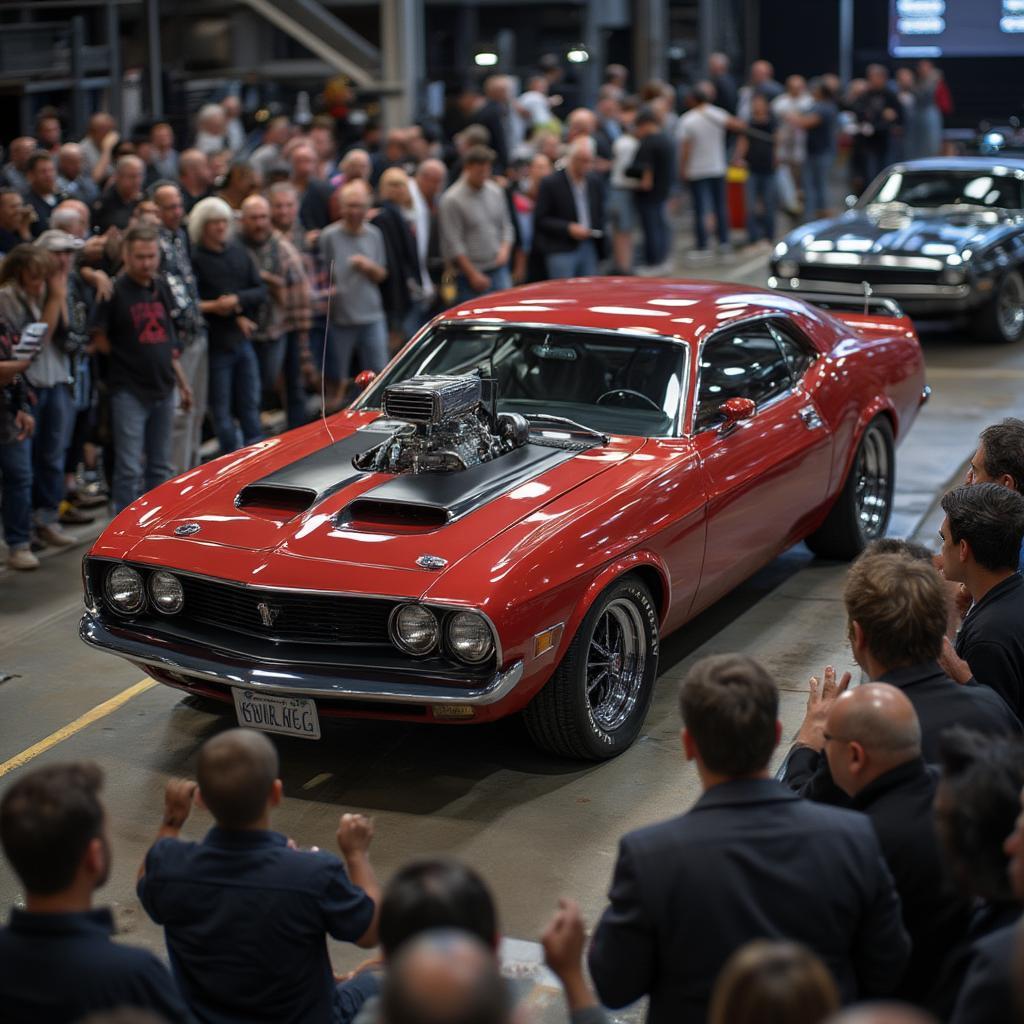
The world of muscle cars is a realm of raw power, iconic designs, and a rich history that continues to captivate enthusiasts worldwide. But among these beasts of the road, some stand out not just for their performance but for their astonishing price tags. What exactly makes these certain muscle cars the most expensive muscle cars? It’s a blend of rarity, historical significance, meticulous restoration, and a high demand from passionate collectors. We’ll delve into the factors that contribute to their high value and explore a few of the most prized examples, giving you a taste of what it means to own a true piece of automotive history.
What Drives Up the Price of Muscle Cars?
Several factors contribute to the extreme values we see in the Most Expensive Muscle Cars. It’s not just about horsepower or speed; it’s a complex equation of nostalgia, rarity, condition, and historical importance.
- Rarity: One of the primary drivers of price is scarcity. Limited-production models, prototypes, or cars with unique features that were only produced in small numbers are the most highly sought after. For example, a specific trim option that was only available for a single year would instantly make that model more desirable among collectors.
- Historical Significance: Muscle cars that played a crucial role in automotive history often command top dollar. This might be a car that broke records, won races, or simply embodied a key moment in the muscle car era. The cultural impact of a particular model on American society also significantly enhances its value.
- Condition and Provenance: The condition of the vehicle is paramount. A meticulously restored car, especially one that retains all its original components, will always fetch a higher price than one that has been heavily modified or neglected. The car’s provenance, or documented ownership history, is also critical. A car that was once owned by a famous personality or has a well-documented racing history adds to its appeal and value.
- Originality: In the world of classic cars, originality is king. Vehicles that retain their original engine, transmission, paint, and interior components are highly desirable. While restorations can be beautiful, collectors generally prize cars that are as close to their original factory condition as possible.
- Market Demand: The overall demand for muscle cars and the specific desirability of a given model can impact prices. As nostalgia for a particular era grows, certain cars will increase in value. The market is also influenced by the tastes and preferences of collectors, which can shift over time.

Iconic Examples of High-Priced Muscle
While there are many muscle cars that have appreciated in value over time, some have attained truly astronomical prices. Let’s explore some of the most notable examples.
The 1970 Plymouth Hemi Cuda Convertible
The 1970 Plymouth Hemi Cuda Convertible is often considered one of the most sought-after and most expensive muscle cars ever produced. With its powerful Hemi engine, only a handful of these convertible models were ever made making them incredibly rare. The combination of its aggressive styling, top-of-the-line performance, and low production numbers means it regularly fetches millions of dollars at auction.
1967 Chevrolet Corvette L88
The 1967 Chevrolet Corvette L88 is a true performance legend. Built for racing, it packed an ultra-powerful 427 cubic inch V8 engine that was rated at 430 horsepower, although many suspect it actually produced significantly more. The L88 was not street legal with all of its racing parts and modifications straight from the factory, making it a special and rare breed. Its racing pedigree and limited availability make it an icon in the muscle car world. This car is a blend of innovation and speed, truly a product of the era that made muscle cars so special.
The Shelby Cobra Daytona Coupe
The Shelby Cobra Daytona Coupe is another prime example of a high-value muscle car with an intense racing history. Built by Carroll Shelby’s team in the 1960s, the Daytona Coupe was specifically designed to compete with European sports cars. Its sleek, aerodynamic design and powerful engine gave it a competitive edge, resulting in a string of racing victories. It’s not just the car’s performance, but the combination of American engineering and European inspiration that has made it such an expensive model.
1969 Chevrolet Camaro ZL1
The 1969 Chevrolet Camaro ZL1 is considered a rare and high-performance variant of the classic Camaro. The ZL1 engine was made from all aluminum and was designed for drag racing. Only 69 of these were ever made, so you can see why they are among the most expensive muscle cars. The ZL1 represents the pinnacle of the first-generation Camaro’s potential, making it a highly collectible piece of automotive history. The allure isn’t just about the car itself; it’s about the stories it tells of an era of bold design and unprecedented power.
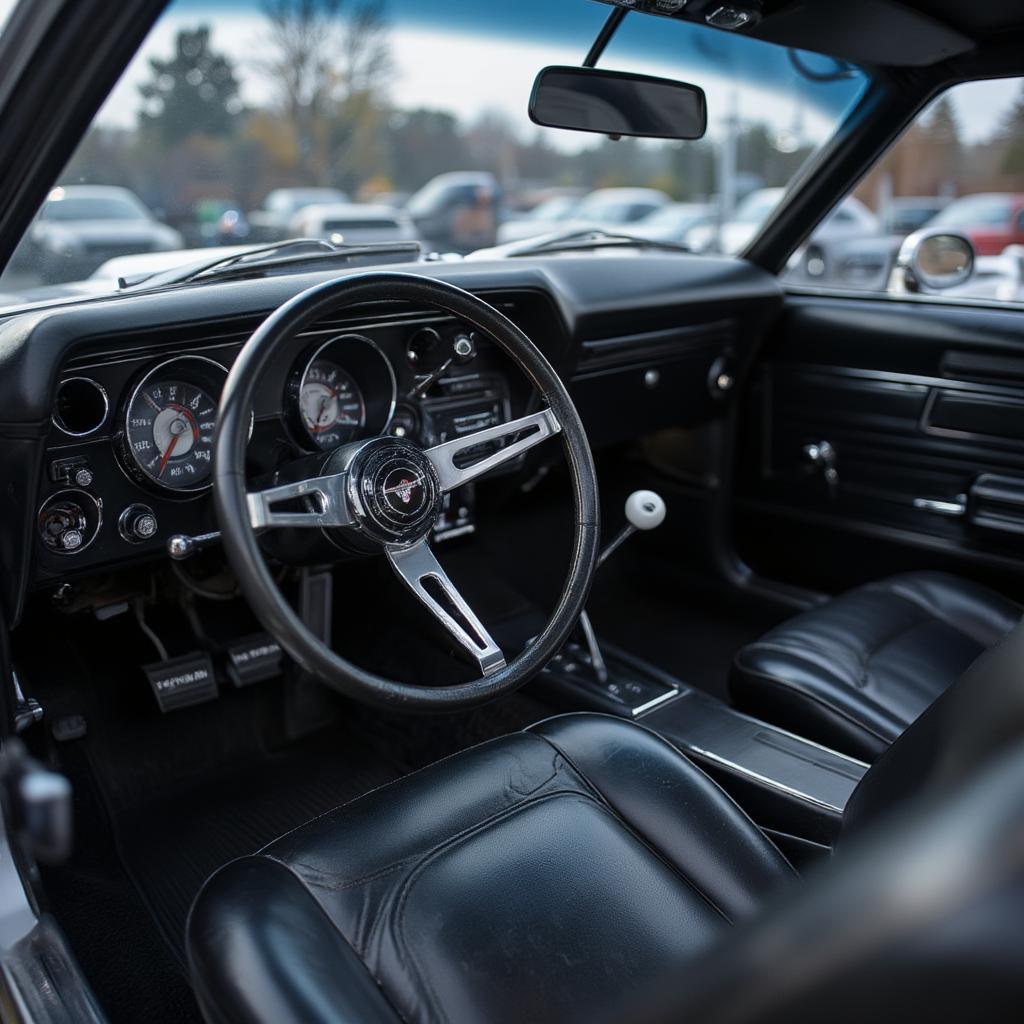
What About British Muscle?
While the term “muscle car” often brings to mind American-made vehicles, there’s also a notable niche for British performance cars. Though not as numerous as their American counterparts, cars like the Aston Martin V8 Vantage and Jensen Interceptor have a unique appeal and hold significant value among collectors. These cars blend power with luxurious comfort, offering a distinctive take on the muscle car concept and are sometimes listed as the most expensive muscle cars in British market. For those who find the classic american muscle car to be too loud, then maybe some refined British engineering will be what your looking for.
“The allure of these rare muscle cars extends beyond their horsepower; it’s about owning a piece of history, a symbol of American ingenuity and power.” says Mark Peterson, a renowned automotive historian.
Factors Affecting Market Value Over Time
The market for muscle cars is dynamic, and various factors can influence the value of these vehicles over time. Here are some of the key considerations:
- Market Trends: The overall market for classic cars is affected by economic conditions, collector interest, and nostalgia. Shifts in these trends can cause values to increase or decrease.
- Restoration Quality: The level of restoration work done on a car can significantly affect its value. A proper restoration that focuses on originality is vital. A bad restoration job can take money away from the value.
- Authentication: Proving the authenticity of a muscle car, verifying its original components, and documenting its history can substantially increase its value. The more information available the more the price of the muscle car may increase.
- Technological Advancements: As technology evolves, advancements in car restoration and documentation techniques can influence how muscle cars are evaluated. New restoration techniques can enhance the longevity and value of these cars.
How to Find Your Own Classic Muscle
If you’re inspired to own a piece of muscle car history, there are a few avenues to consider. While obtaining one of the most expensive muscle cars on the market might not be feasible for most, there are many other classic options available. The classic muscle car market can be very competitive, so you should always do research and ask the seller as many questions as possible. There are a lot of good cheap classic muscle cars for sale that you might enjoy.
- Specialist Dealers: Many dealers specialize in classic and muscle cars. They can provide expertise and handle all the intricacies of purchasing a classic vehicle.
- Auctions: Collector car auctions can be a great place to find rare and high-value muscle cars. However, be prepared to spend a lot of time researching prior to any big purchase.
- Online Marketplaces: Online platforms can be used to search a wide array of muscle cars, but you should be cautious and verify the sellers thoroughly.
- Car Clubs: Joining a car club can give you access to a network of enthusiasts, who may have insights into cars that are available for sale.
It’s also important to consider the condition of the car and the availability of spare parts, as maintaining a classic muscle car can be a significant undertaking. Look for well-preserved examples that come with service history records to avoid costly surprises.
Why are Muscle Cars Still So Popular?
The enduring popularity of muscle cars can be attributed to a number of reasons. They are not just machines; they represent a significant piece of American history and a powerful symbol of automotive innovation.
- Nostalgia: For many, muscle cars evoke strong feelings of nostalgia for a bygone era. They represent a time of freedom, excitement, and raw power, a true time capsule of Americana.
- Performance: The unparalleled performance and aggressive styling of muscle cars continue to be a major draw. The sound of a roaring V8 engine is a visceral experience that resonates with many enthusiasts.
- Investment Potential: The market for classic muscle cars has shown strong growth, making them an attractive investment for many collectors. The rarity and value of these cars have made them a lucrative asset class.
- Community: The muscle car community is very passionate, and owning one of these cars can provide an experience of belonging and camaraderie. Car shows and events are a common pastime for those in the muscle car community.
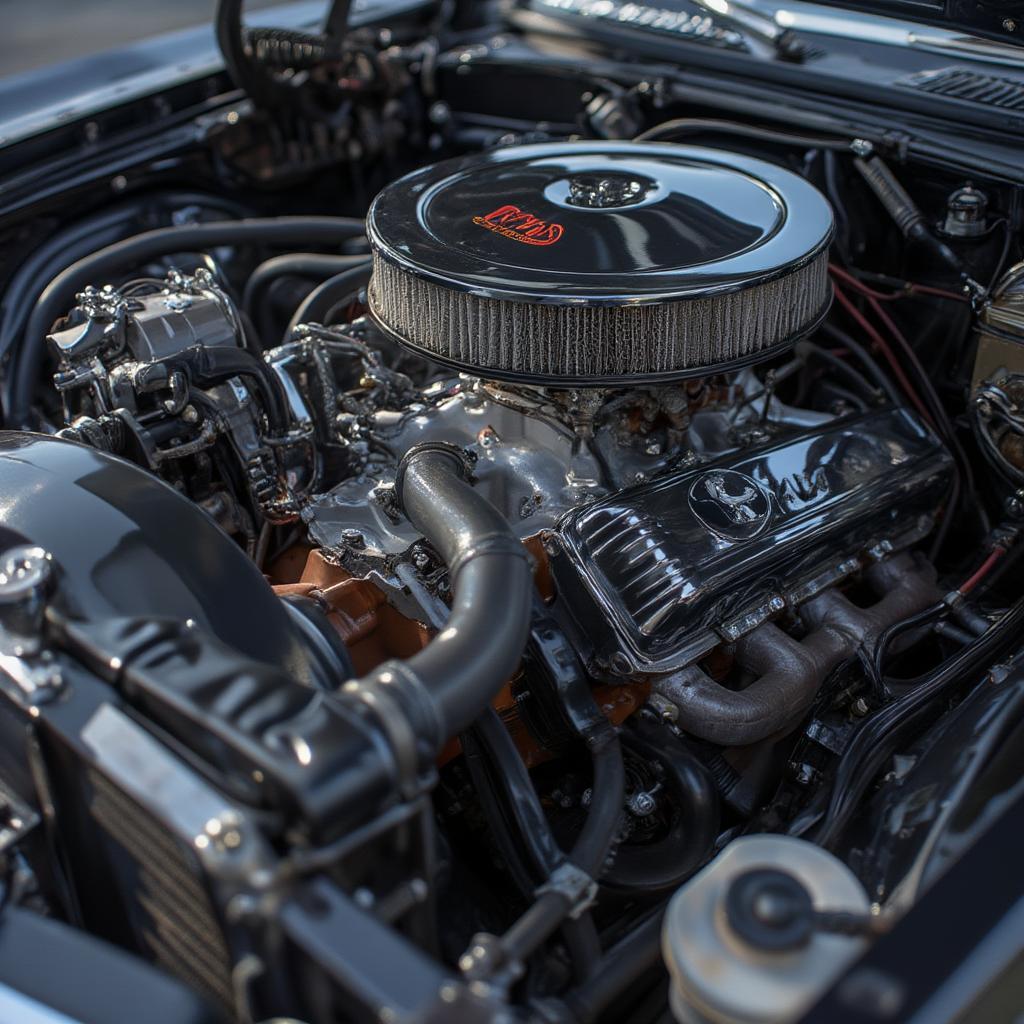
“The passion for muscle cars is a testament to their timeless appeal. It’s more than just owning a vehicle; it’s about being part of a legacy,” states Sarah Evans, a well-respected collector and car enthusiast.
Conclusion
The world of most expensive muscle cars is a captivating mix of automotive history, engineering brilliance, and passionate collecting. Whether it’s the rarity of a Hemi Cuda, the racing heritage of a Shelby Daytona, or the engineering feats of a 1969 Camaro ZL1, these cars are more than just machines—they are pieces of cultural history. Understanding the factors that drive up their values, from their rarity to their historical significance, helps us appreciate the true legacy of these automotive icons. While most people may only ever dream of owning one of these examples, there are still lots of 1970 chevelles for sale and other great options that can provide a great muscle car experience.
Frequently Asked Questions (FAQs)
-
What makes a muscle car “expensive”?
A muscle car’s price is driven by factors like rarity, historical significance, condition, originality, and market demand. Limited-production models or cars with racing history are the most expensive muscle cars. The car must be in great condition and also have all of its original parts, this helps boost the value. -
Are all vintage muscle cars expensive?
No, while some muscle cars command astronomical prices, many classic muscle cars are still relatively affordable. The most expensive muscle cars are those with unique characteristics and strong historical connections. -
What is the most expensive muscle car ever sold?
While prices fluctuate, some of the most expensive muscle cars sold at auction include the 1970 Plymouth Hemi Cuda Convertible and select Shelby Cobras and Corvettes. These have all sold for millions of dollars over the years. -
How can I verify the authenticity of a classic muscle car?
Verifying the authenticity involves researching the car’s VIN, checking for matching numbers, getting a professional appraisal, and reviewing documented ownership history. Always seek help from a professional to assist you with this. -
Is restoring a classic muscle car a worthwhile investment?
Restoring a classic muscle car can be a good investment if the restoration is done with high quality and attention to originality. However, costs can be high, and returns aren’t always guaranteed. Some cars that need restoration may seem like a cheap option, but by the time you fix it and restore it, you might not come out on top. -
Where can I find a muscle car for sale?
You can find muscle cars at specialist dealerships, auctions, online marketplaces, and car clubs. Always do thorough research and verify the credibility of sellers to ensure the purchase is safe. There are lots of options for cheap muscle cars for sale if your not looking for one of the most expensive ones. -
What are some British muscle car options?
British alternatives include models like the Aston Martin V8 Vantage and Jensen Interceptor. These are considered by some to be the most expensive muscle cars in the British automotive market. You can find british muscle cars for sale at many specialty dealerships. -
Is there a guide for pricing muscle cars?
Several resources provide pricing guides for muscle cars, but these are just estimates. The final value will depend on multiple factors. Consulting with an appraiser is always recommended before making a purchase. -
What is the cheapest way to get into the muscle car hobby?
The cheapest way to get into the muscle car hobby would be to get a project car that has some problems that need to be worked out. A 2021 model might be your easiest option to get into the hobby, as you can sometimes find cheapest muscle cars 2021 on the market.

